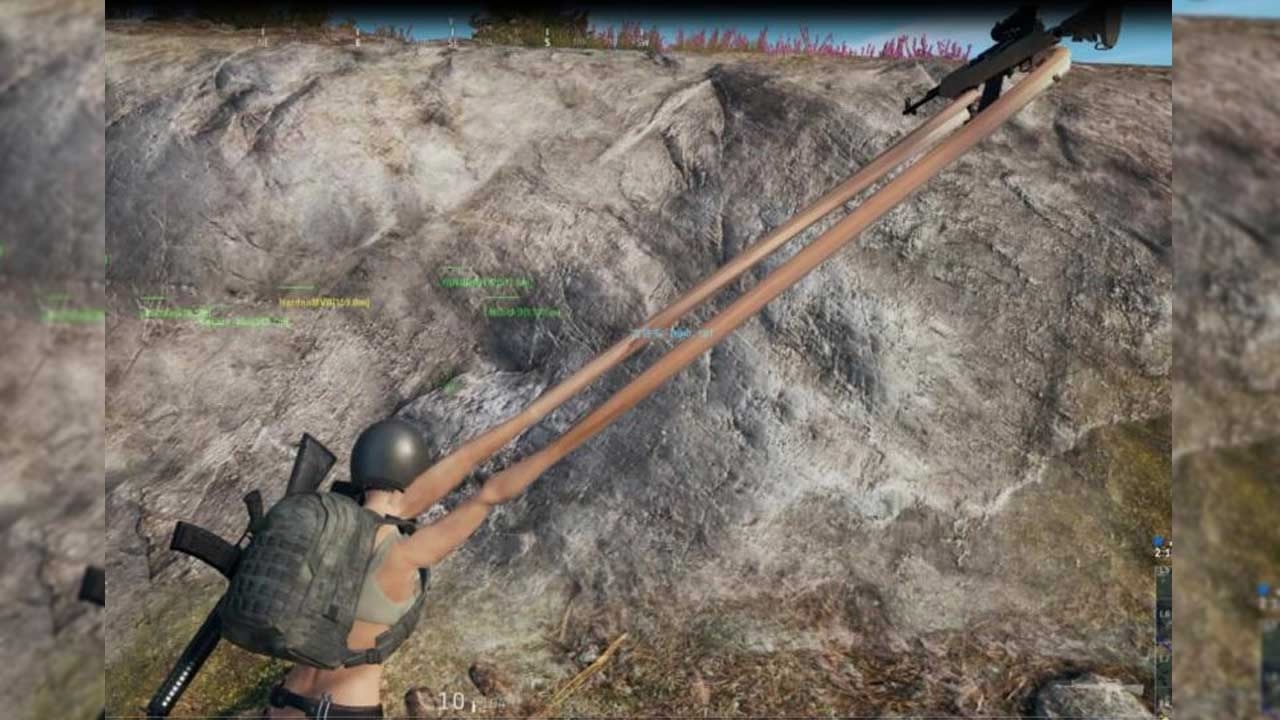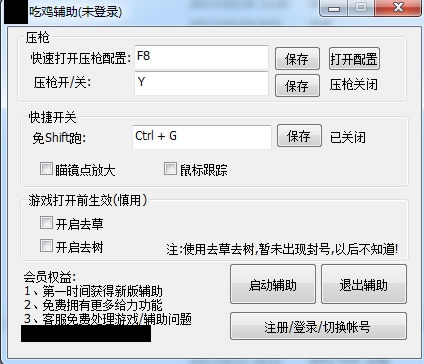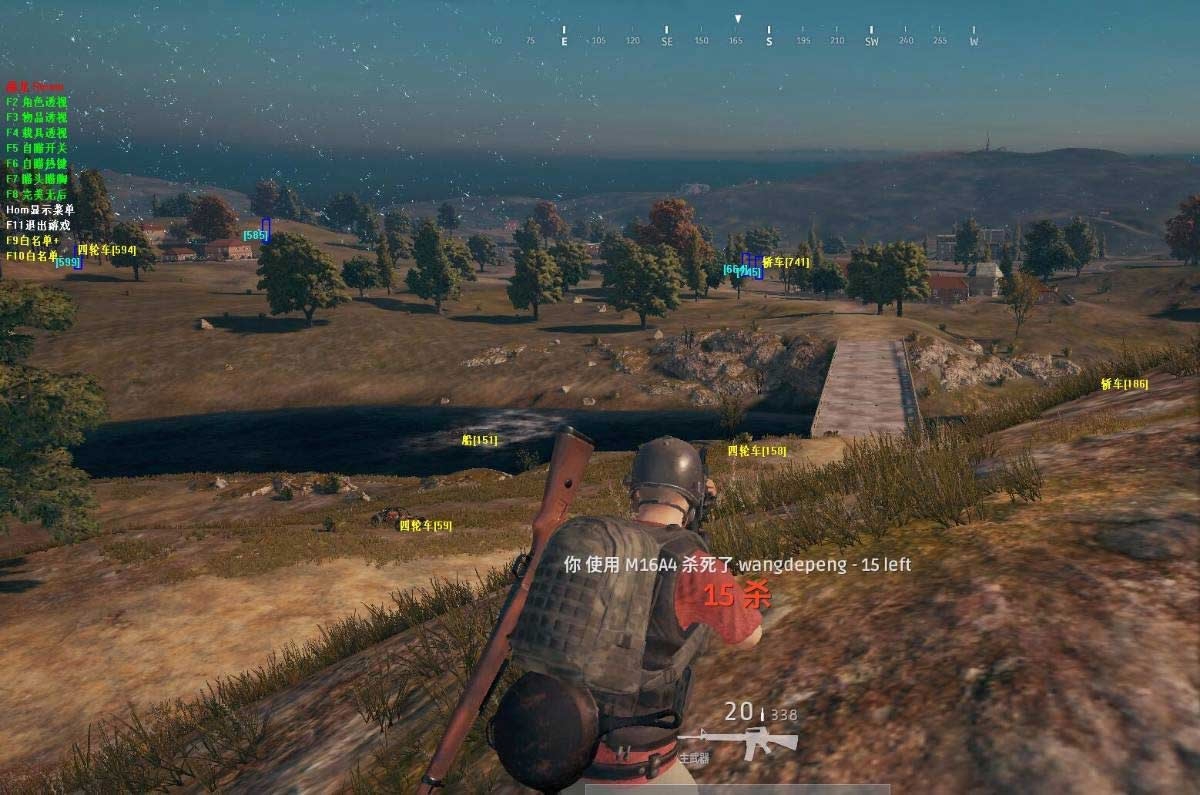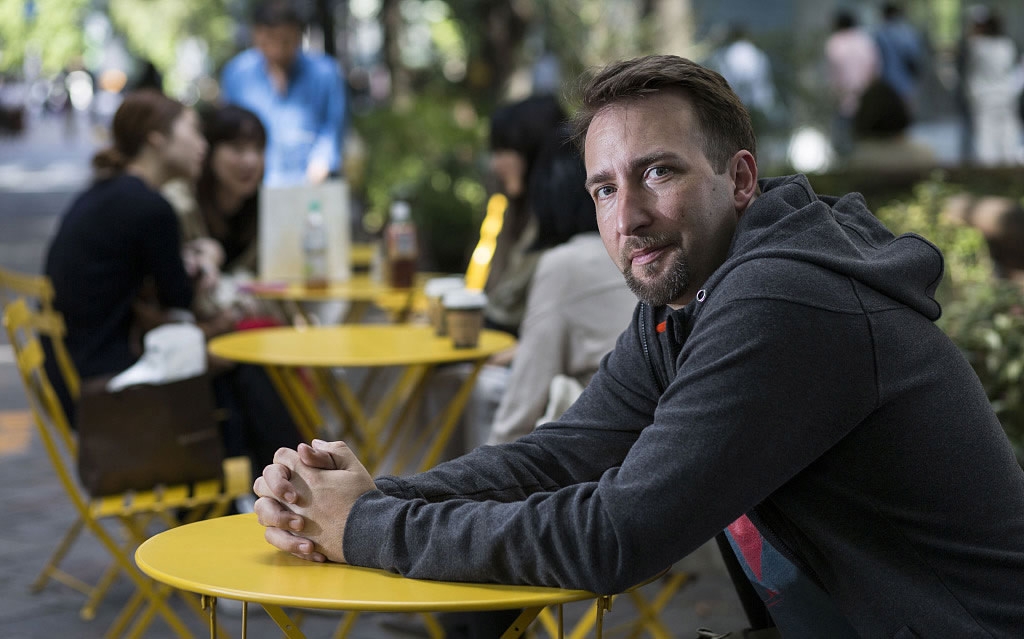
Gaming
17:05, 13-Jan-2018
PUBG: The massively popular game and its Chinese cheaters
By Gong Zhe

You can't call yourself a gamer unless you've heard of "PlayerUnknown's Battlegrounds," or PUBG. The Battle Royale style game has more than three million players on the PC-gaming platform Steam everyday.
But the game has been haunted by cheaters since launch.
The game takes place in an arena where 100 players battle it out until there's only one man standing. Some players want to win so bad, they resort to cheating.
As a PC shooting game, the mechanic of aiming and clicking a mouse to shoot provides ample space for "aimbots" – software that can automatically aim the gun at an enemy's head, no matter how far away the opponent is.
In PUBG's case, the hackers even built "assistants" that can scale down a character's size to prevent being found, or extend arms to a funny length, giving the player the advantage of aiming at a closer distance.

A PUBG "assistant" software, with auto-aiming, see-through and other functions /Web Screenshot
A PUBG "assistant" software, with auto-aiming, see-through and other functions /Web Screenshot
In December, tech blog Kotaku posted an article citing PUBG creator Brendan Greene as saying that 99 percent of the game's cheaters were from China.
The website later corrected the source to an anti-cheat provider BattleEye.
What's worse, the cheat software has recently become open-sourced. It means the software is free for everyone to use and modify, making it even harder to be detected.
Industrialized cheating
On China's side, cheating software is already an industry.
Nearly half of the game's players are from China, roughly 13 million people. It's a vast market for people to sell software to help you cheat games.
Some sellers play the game themselves, and cheat to get to the "top players" list. Their nicknames are their contact information.
Local gaming media sneaked into an online group for cheating software to find out what was exactly happening.
Blogger GameSeer found that the price of cheating software ranged from 20 to 1,000 US dollars, depending on the "self-protection" abilities – the higher you pay, the less probable you'll get banned.
A seller even suggested the blogger quit writing and start selling cheats instead, because it makes more money.
"Foreign games have more loopholes. There are less cheaters in other countries, thus foreign companies don't have enough experience dealing with hackers," another re-seller said. "It's a shame for us Chinese, but it's also my business."

PUBG see-through cheat in action /Web Screenshot
PUBG see-through cheat in action /Web Screenshot
It can be really hard to stop cheaters.
The game's developer, S. Korean company BlueHole, vowed to make the game more hack-proof.
The company banned more than 1.5 million PUBG accounts for cheating. Brendan Greene claimed "we've reduced hacking by 67.5 percent" in an interview with Polygon.
Greene also said the team has already rolled out a cheat-detecting system and will continue upgrading it.
But it didn't stop cheaters from poisoning the game. Because the ban is based on account names and not IP addresses, players get around it by simply buying a new copy of the game. And the cheating continues.
"All you non-cheaters buying the game once just won't cut it," a player nicknamed SleepyTime complained on game seller Steam's website.
Xenophobia?
The overwhelming number of cheaters has drawn negative comments from around the web, with players writing reviews on Steam asking for a regional ban on the country.
While condemning cheaters, Greene also pointed out that it's shameful to call for all Chinese players to be expelled from the game.
He told Polygon that "this kind of xenophobic attitude that a lot of Western players seem to have online is just disgraceful. It's 2017! We live on one big planet together!"
Greene used swear words to describe the situation.

Brendan Greene, the creator of PUBG /VCG Photo
Brendan Greene, the creator of PUBG /VCG Photo
"The Chinese player base is very passionate for Battlegrounds and they love our game. They're the reason we have such a high number of concurrent users. Yes, there's some cheaters that come out of there, but the majority of our Chinese players just love our game and love playing it," Greene told Polygon.
Another reason for Greene's call for calm might be the fact that Chinese gaming giant Tencent is creating a China-dedicated PUBG server.
It's possible that Chinese players will be locked in the Tencent server, unable to play with foreigners any more.
The same thing has happened before to other games, including Call of Duty series and Rocket League. After Tencent booted up the local server, the games became unavailable on foreign sellers like Steam.

SITEMAP
Copyright © 2018 CGTN. Beijing ICP prepared NO.16065310-3
Copyright © 2018 CGTN. Beijing ICP prepared NO.16065310-3